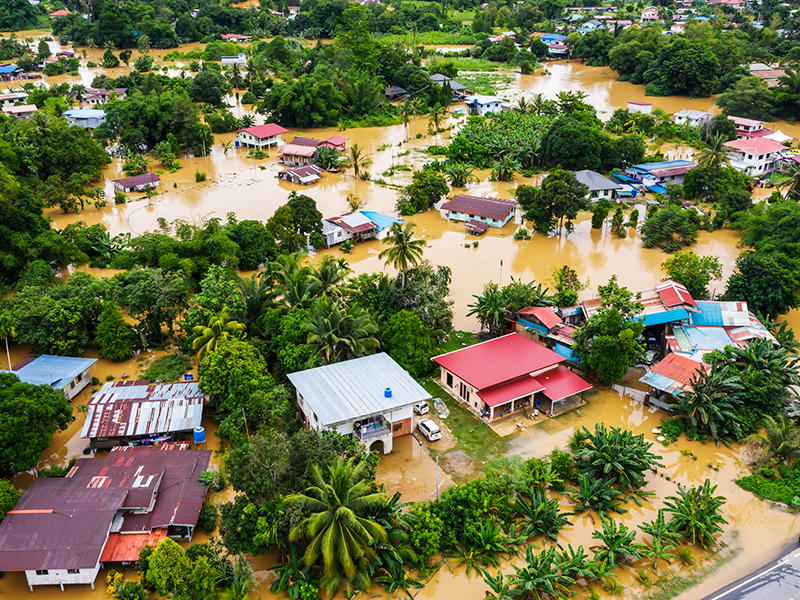Introduction
BSR worked with Unilever over six months to provide the company with a deeper understanding of the concept of climate justice and its implications across different communities throughout the value chain, which has served to further ensure people and equity are at the heart of the company’s climate strategy.
The Story of Unilever
With over 400 brands available in over 190 countries across categories like beauty and well-being, personal care, home care, nutrition, and ice cream, Unilever is one of the largest consumer goods companies in the world. Driven by its ambition to be a global leader in sustainable business and the recognition that climate change poses an imminent threat to the environment, society, and businesses worldwide, the company developed a Climate Transition Action Plan. The plan, which sets out Unilever’s targets and actions to reduce emissions across its own operations and supply chains, was backed by over 99 percent of shareholder votes at the company’s May 2021 Annual General Meeting. With a clear mandate and roadmap—including significant brand investments through Unilever’s €1 billion Climate and Nature Fund— the company looked to ensure interconnectivity with its social sustainability programs by understanding how to promote and advance climate justice. Unilever is also a founding member of BSR’s Transform to Net Zero, a cross-sector initiative to accelerate the transition to an inclusive, net-zero global economy.
The Opportunity to Act on Climate Justice
Climate justice is the recognition that climate change disproportionately impacts some communities over others and exacerbates underlying systemic inequalities. The concept originally emerged as an important nexus between climate change and social justice and has become a key priority for businesses across multiple sectors. This has been a point of focus for discussions at global climate events like COP26 and for the collective work of companies, as seen in business-led collaborations such as Transform to Net Zero.
For Unilever, acting on climate justice helps the company decarbonize its business while creating a fairer, more socially inclusive world, in line with the Unilever Compass Strategy. While the company already had targets in place in these areas, Unilever saw a broader opportunity and imperative to advance climate justice across the business and value chain.
BSR’s Response
To help Unilever understand how to act on climate justice, BSR developed a twofold project approach focused on internal listening and engagement across Unilever’s global operations. First, BSR facilitated an interactive workshop with Unilever employees across functions such as sustainability, supply chain, and responsible sourcing to increase awareness of climate justice and to explore how the concept could be integrated across the company and existing initiatives.
Second, BSR conducted focus group interviews with over 30 Unilever employees across 10 markets (Australia, Brazil, Costa Rica, Ethiopia, India, Indonesia, Nepal, Turkey, United States, and Vietnam). The objective of the focus group discussions was to garner firsthand accounts from colleagues directly affected by the adverse impacts of climate change and to understand how some communities are affected more than others due to underlying systemic inequities and inequalities, such as limited access to healthcare, clean energy, or opportunity to influence local policies. Across the different markets, discussion participants explored how Unilever and its brands can advance climate justice with others by expanding or amplifying existing programs or developing new approaches. The focus groups were supplemented with a short survey to capture additional insights in writing and ensure cultural sensitivity and differing communication preference.
After completing the internal engagement, BSR synthesized key findings and insights, both globally and by country. In addition, BSR developed tailored recommendations to Unilever recognizing the importance of treating climate justice as a context-based issue. Finally, BSR proposed further areas for action including an identification of critical areas, e.g., how Unilever’s supplier engagement, energy procurement, or programs on reforestation and circularity can contribute to reducing or exacerbating existing climate injustices. BSR also recommended engaging and listening to external stakeholders, such as suppliers, communities, and grassroots organizations at the local level, since authentic relationship building on climate justice is based on meaningful social dialogue. Solutions to address climate justice must be led by or co-created with communities most affected to address unique local needs and barriers to climate justice, while leveraging local solutions, context, and competencies.
Impact
Upon completion of the project, Unilever had a strong grasp of how climate justice relates to different sectors and countries, as well as how it connects to Unilever and affects its people. In addition, the project provided the company with a clear understanding of the perspectives, impacts, key issues, and real-life stories of climate change and climate justice—from both a personal and value chain perspective—from people working at Unilever. Finally, the project built the foundation of Unilever’s further work on climate justice. The company now understands how to build on existing efforts, and what overarching issues Unilever is best positioned to address across its value chain, at the company-level, with civil society organizations, and through collaborations such as Transform to Net Zero.
Conclusion
BSR strongly believes that climate justice must be central to any corporate climate commitment or action plan. Unilever’s efforts to understand, integrate, and advance climate justice through internal listening and awareness raising are a critical first step to ensuring full integration into its programs, operations, and supply chains and making a positive impact on stakeholders that are disproportionately affected by climate change.
Get in Touch
To learn more about how BSR works with companies to advance climate justice, contact our Climate team.
Let’s talk about how BSR can help you to transform your business and achieve your sustainability goals.









